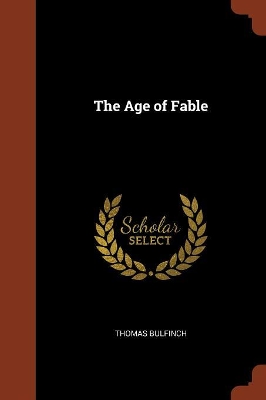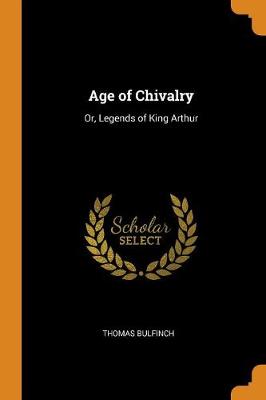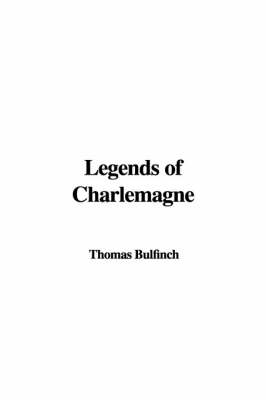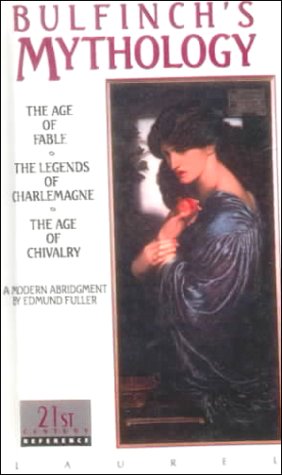Bulfinch's Mythology
3 primary works • 4 total works
Book 1
Since first published 150 years ago, Thomas Bulfinch's retellings of the legends of Greece and Rome provide a ready reference to mythology. The book celebrates the themes which have influenced Western artists, writers and thinkers. It uses quotations from poets, such as Shakespeare, Keats and Wordsworth, to show how the images of the classical world have enriched the world of literature. The full, original text of stories is here published with 140 masterpieces inspired by these myths. The works of artists, including Botticelli, Raphael, Poussin, Tiepolo and Burne-Jones, combine with these retellings.
Book 2
In a time when traditional manly virtues like courage, perseverance, loyalty, honor, the importance of physical strength and martial skill, and (dare we say it!) true, selfless Chivalry have been all but forgotten by American society, there can be no better role model for contemporary boys than the great historical and legendary figure of Arthur, King of the Britons. This classic collection of Arthurian Tales includes both the complete British adventures of King Arthur and His Knights and their generally more mysterious Welsh counterparts, as recounted in the Mabinogeon. Here, also, are the sagas of many great heroes of the British race, including the Danish monster-slayer, Beowulf, Cuchulain, the Champion of Ireland, and the beloved Anglo-Saxon archer/bandit/hero, Robin Hood. Recounted as exciting adventure stories, in plain English, Thomas Bulfinch's THE AGE OF CHIVALRY is the most complete - and inspirational - compilation of Arthurian lore available in this or any age.
Book 3
Kind of a biography, based on myths, legends and stories about "Charlemagne" - Charles the Great, king of the Franks. Read about the adventures of the fantastic Paladines and about the greatest of them all - Roland.
For almost a century and a half, Bulfinch's Mythology has been the text by which the great tales of the gods and goddesses, Greek and Roman antiquity; Scandinavian, Celtic, and Oriental fables and myths; and the age of chivalry have been known.
The stories are divided into three sections: The Age of Fable or Stories of Gods and Heroes (first published in 1855); The Age of Chivalry (1858), which contains King Arthur and His Knights, The Mabinogeon, and The Knights of English History; and Legends of Charlemagne or Romance of the Middle Ages (1863). For the Greek myths, Bulfinch drew on Ovid and Virgil, and for the sagas of the north, from Mallet's Northern Antiquities. He provides lively versions of the myths of Zeus and Hera, Venus and Adonis, Daphne and Apollo, and their cohorts on Mount Olympus; the love story of Pygmalion and Galatea; the legends of the Trojan War and the epic wanderings of Ulysses and Aeneas; the joys of Valhalla and the furies of Thor; and the tales of Beowulf and Robin Hood.
The tales are eminently readable. As Bulfinch wrote, "Without a knowledge of mythology much of the elegant literature of our own language cannot be understood and appreciated. . . . Our book is an attempt to solve this problem, by telling the stories of mythology in such a manner as to make them a source of amusement."
The stories are divided into three sections: The Age of Fable or Stories of Gods and Heroes (first published in 1855); The Age of Chivalry (1858), which contains King Arthur and His Knights, The Mabinogeon, and The Knights of English History; and Legends of Charlemagne or Romance of the Middle Ages (1863). For the Greek myths, Bulfinch drew on Ovid and Virgil, and for the sagas of the north, from Mallet's Northern Antiquities. He provides lively versions of the myths of Zeus and Hera, Venus and Adonis, Daphne and Apollo, and their cohorts on Mount Olympus; the love story of Pygmalion and Galatea; the legends of the Trojan War and the epic wanderings of Ulysses and Aeneas; the joys of Valhalla and the furies of Thor; and the tales of Beowulf and Robin Hood.
The tales are eminently readable. As Bulfinch wrote, "Without a knowledge of mythology much of the elegant literature of our own language cannot be understood and appreciated. . . . Our book is an attempt to solve this problem, by telling the stories of mythology in such a manner as to make them a source of amusement."



